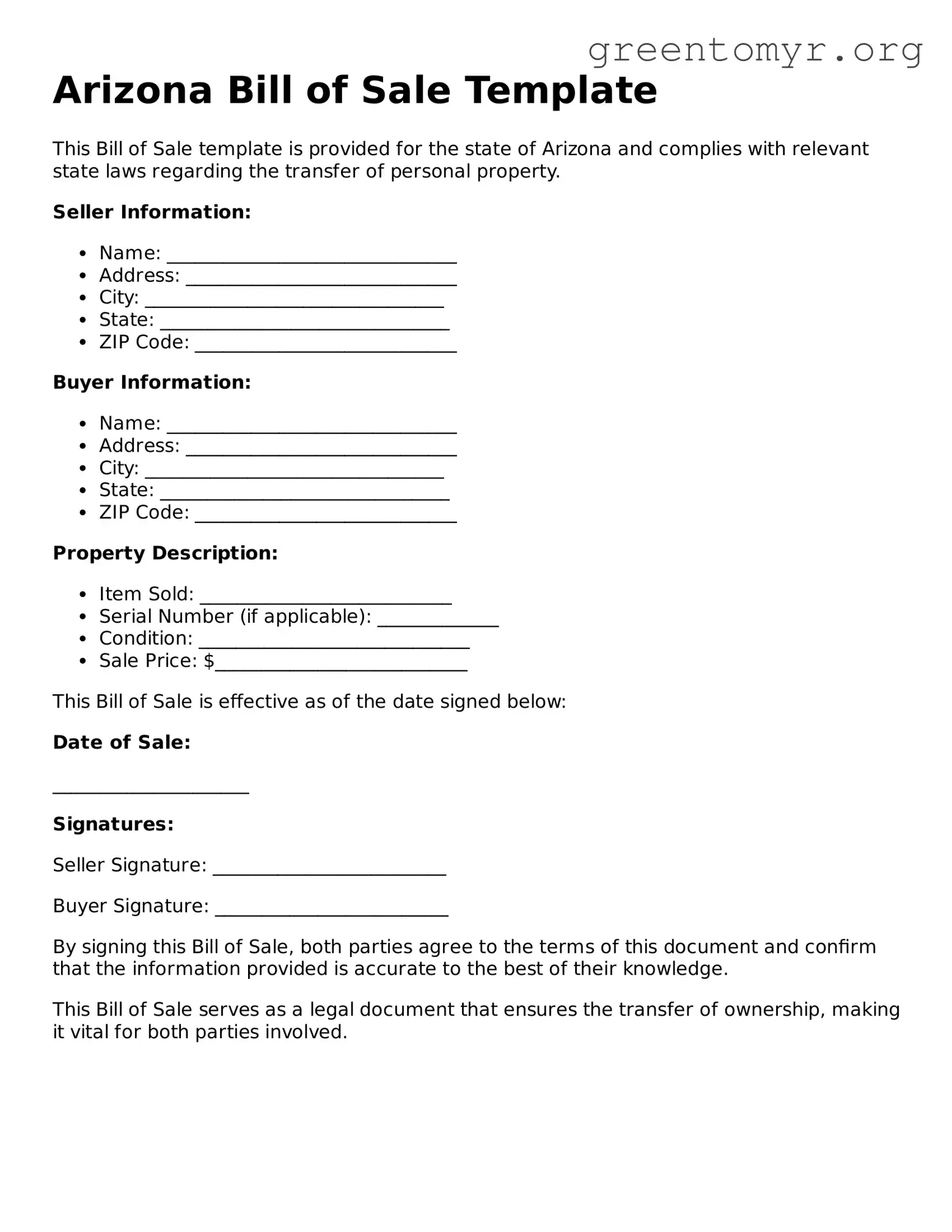What is an Arizona Bill of Sale?
An Arizona Bill of Sale is a legal document that serves as a receipt for the transfer of ownership of personal property. This document is particularly important for transactions involving vehicles, boats, and other valuable items. It provides proof of the sale and includes essential details about the transaction, ensuring that both the buyer and seller have a clear record of the agreement.
When do I need a Bill of Sale in Arizona?
A Bill of Sale is typically required in several situations, including:
-
When selling or purchasing a vehicle, motorcycle, or boat.
-
When transferring ownership of valuable personal property, such as furniture, electronics, or artwork.
-
For tax purposes to document the sale price and ownership transfer.
Even if not legally required, having a Bill of Sale is a good practice as it helps prevent disputes and provides a record in case either party needs to reference the sale in the future.
A comprehensive Bill of Sale should include the following details:
-
The full names and addresses of both the buyer and seller.
-
A description of the item being sold, including the make, model, year, and vehicle identification number (VIN) for vehicles.
-
The sale price and payment method.
-
The date of the transaction.
-
Any warranties or guarantees, if applicable.
Including all this information helps protect both parties and clarifies the terms of the sale.
Do I need to notarize the Bill of Sale in Arizona?
In Arizona, notarization is not required for a Bill of Sale to be valid. However, having the document notarized can add an extra layer of security and trust. It helps ensure that both parties have entered into the agreement willingly and that their signatures are authentic. Therefore, while notarization may not be mandatory, it is often a good idea to consider.
Is a Bill of Sale necessary for private vehicle transactions?
Yes, a Bill of Sale is important for private vehicle transactions in Arizona. It serves as proof of the ownership transfer and provides necessary details for vehicle registration with the Arizona Department of Transportation. Though the title itself is the primary document for transferring ownership, a Bill of Sale can help clarify the terms of the sale and serve as a record of the transaction.
What if there are issues or disputes after the sale?
If disputes arise after the sale, having a Bill of Sale can be invaluable. This document acts as evidence of the agreed-upon terms, aiding in resolving any misunderstandings between the buyer and seller. If necessary, the Bill of Sale can support claims in legal proceedings or during negotiations. Always keep a signed copy for your records, as it can be crucial for both parties in case of complications.
While you can create your own Bill of Sale, it is essential to ensure that it includes all the necessary information to protect your interests. Templates and forms are widely available online, making it easy to find one that meets your needs. However, whether you choose a template or draft one from scratch, the key is to ensure that the document captures all pertinent details regarding the transaction.
